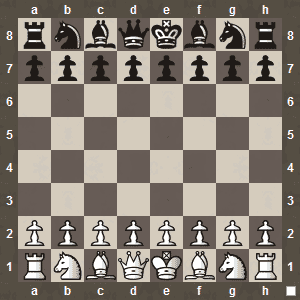How Many Squares are there in a Chessboard?

How many squares are there in a chessboard?
Bonus : Can you deduce a formula for a n × n chessboard?
This section requires Javascript.
You are seeing this because something didn't load right. We suggest you, (a) try
refreshing the page, (b) enabling javascript if it is disabled on your browser and,
finally, (c)
loading the
non-javascript version of this page
. We're sorry about the hassle.
2 solutions
Thank you, nice solution.
There are : 1 : 8 × 8 s q u a r e 4 : 7 × 7 s q u a r e s 9 : 6 × 6 s q u a r e s 1 6 : 5 × 5 s q u a r e s 2 5 : 4 × 4 s q u a r e s 3 6 : 3 × 3 s q u a r e s 4 9 : 2 × 2 s q u a r e s 6 4 : 1 × 1 s q u a r e s So, the total number of squares = 6 4 + 4 9 + 3 6 + 2 5 + 1 6 + 9 + 4 + 1 = 2 0 4 s q u a r e s
For a n × n chessboard the total number of squares can be obtained by adding all the squares of integers till n starting from 1 . ⟹ 1 2 + 2 2 + 3 2 + 4 2 + . . . + ( n − 1 ) 2 + n 2 ⟹ 6 n ( n + 1 ) ( 2 n + 1 )
Thank you, nice solution.
Every square on the chessboard can be uniquely identified by its sidelength and its bottom-left cell
For every k × k square, we count how many cells can be the bottom-left:
It follows that the number of squares is 1 2 + 2 2 + 3 2 + ⋯ + 7 2 + 8 2 = 6 8 ⋅ ( 8 + 1 ) ⋅ ( 2 ( 8 ) + 1 ) = 2 0 4
Bonus Answer : The same pattern persists for n × n boards, giving 1 2 + 2 2 + 3 2 + ⋯ + n 2 = 6 n ( n + 1 ) ( 2 n + 1 ) squares.